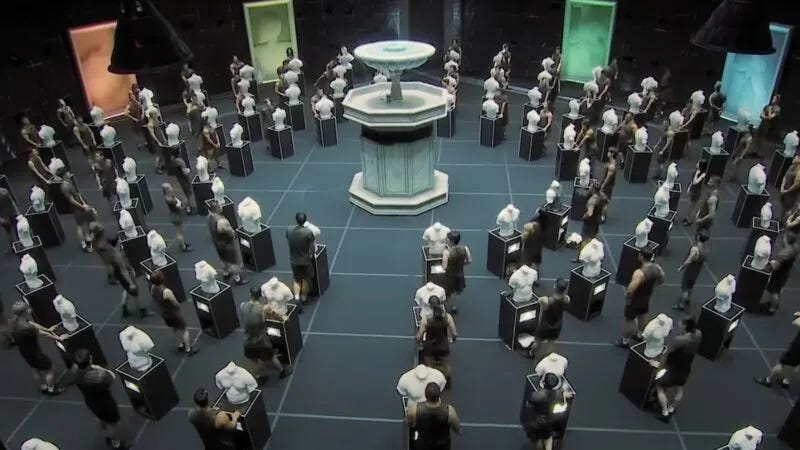When I first saw the new federal government campaign designed to attract people to the profession, I was disappointed but unsurprised that teaching was presented as a vocation — we do it for the rewards. Like Medecins Sans Frontiers or nuns, we have a calling. No doubt, there are rewards, but it’s a shame that after five or more years of tertiary education, we can’t offer something better than good vibes. After talking to some colleagues who have witnessed similar moves in the UK, I mellowed a little. Extensive research has consistently shown that the rewards are the key pull factor. And like my work-wife said — to paraphrase — what other story could they tell?
After sitting with this campaign for a couple of weeks, I think I know why this campaign doesn’t work for me. It’s all about the extraordinary rewards, not the day-to-day ones. Perhaps I’m feeling bitter, as I drink out of my Aldi ‘Best Teacher Ever’ tea mug, but I think if teachers have to wait for a star to be named after them, they might be struggling along with the day-to-day for some time. I recall working in a high-needs setting, where students might take up to six months, hand over hand, to learn to put their lunch boxes into their bags. I had to ask myself what value I was adding each and every day. My story is indicative of the broader daily work of teaching.
The Australian campaign features a series of teachers who have received some kind of extraordinary reward1. We have Mrs Lacey, a music teacher whose student named a star after her — no star for the physics teacher, sadly. We have Mr Collison who facilitated the making of a t-shirt for Indigenous students who could now identify with their background. We have Mrs Frogley, whose student went on to the Paralympics after her encouragement. The gallery walk at the ends of these commercials reminds me of the game show Physical 100, where insanely jacked Koreans compete for extraordinary rewards but are required to smash their plaster torso with a hammer if it doesn’t work out. There’s a metaphor here.
The other issue that Greg Ashman brought up is that there is a certain kind of teacher who is driven by student adoration. I make no judgement about the teachers in the campaign, but each year on Facebook, we see the teachers who bake content instead of just teaching it. I mean literally. Over the years, I have seen entire syllabi atop cakes, written in icing, Victory chocolate from 1984, vanilla sponge Roman leaders, assassinated by jam oozing from their necks. Then there are the early career teachers ‘giving high school a second crack’ as a colleague put it to me. All sorts of professional boundary issues arise when teachers are motivated by student attention.
Teaching is certainly noble and undoubtedly rewarding, but the new Australian campaign has little to do with the grind of teaching, where the rewards are usually tiny but cumulative. For contrast, I’ve included the UK campaign, Every Lesson Shapes a Life. Here we see routine teaching; the joy of hearing correct responses in the classroom; multiple examples of collegiality; warm yet firm pastoral care; and praising students rather than the praise flowing mostly the other way. The voiceover talks about supporting students through the “good times and challenging times,” and the teacher ends with the words, “See you tomorrow.” The challenges and the rewards are relentless and that’s what keeps a good teacher coming back.
The exceptions are Miss Andrews who has taught a student to read, and Mr Wang seems like a pretty good maths teacher but we don’t really know why.





So true! In the US there seems to be a quest to decorate your classroom for instagram shots instead of for instruction. We’ve replaced problematic student adoration with even more problematic online adoration
Well written. So many of your sentiments resonate with me. Dealing with the teachers who need adoration from students is ongoing and tiresome. The campaign is a visual representation of some marketer’s representation of what they think teachers value most about the profession. For me, seeing growth in what students can achieve, seeing their self efficacy improve and their growing sense of agency is the best. This year I had a very high achieving English Advanced HSC Class and a non ATAR English Studies class. My greatest wins were the gradual shift in mindset in my students. My English Studies students were initially so disengaged as learners. The turning point for me was receiving a handful of practice essays and requests from some of those students to meet to discuss their learning. Their engagement was huge for me. Their desire to do well, to take on feedback saw a number of them do really well. Now that would never make a campaign. There’s nothing exciting about disengaged students writing essays and seeking feedback. It won’t change the world but if did reiterate that setting high expectations with appropriate support and explicit teaching of writing as a means of improving outcomes can improve student efficacy. Again not nuanced enough for a soundbite or campaign set to inspirational music but it is the reason we keep on doing what we do.